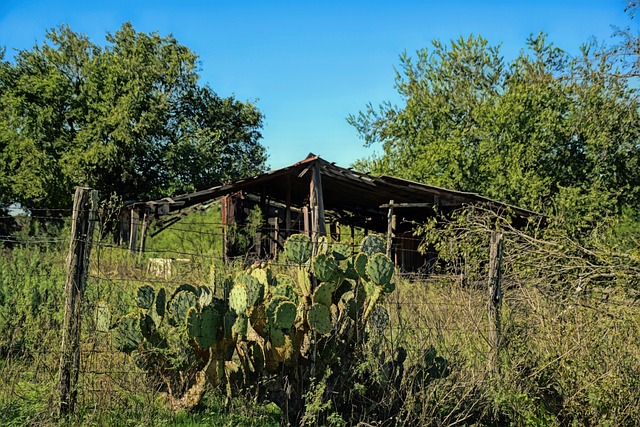Texas law strictly prohibits hazing, focusing on protecting students from sexual assault through initiation rituals. The Hazing Prevention Act holds organizations accountable. Austin, TX, is home to specialized hazing abuse law firms that support survivors and ensure justice against negligent institutions. These firms combine legal expertise with counseling services, guiding victims through documentation, evidence preservation, reporting, and legal options while advocating for policy changes to enhance campus safety.
In Texas, the issue of hazing and its devastating impact on sexual assault victims demands urgent attention. Hazing abuse, often concealed under the guise of initiation rituals, can have long-lasting psychological effects, leaving survivors with trauma and a sense of powerlessness. The current legal landscape presents challenges for victims seeking justice, as hazing is not always explicitly defined or addressed in existing laws. To counter this, we explore Texas’s legal remedies, focusing on recent legislative efforts to enhance protections for victims. Austin-based hazing abuse law firms have been instrumental in advocating for these changes, ensuring that survivors have access to the support and resources they deserve.
Understanding Texas Laws Against Hazing

Texas laws against hazing are designed to protect students from a range of harmful behaviors, including sexual assault, which often takes place under the guise of initiation rituals or “hazing.” These laws are crucial in holding individuals and organizations accountable for such actions. In Texas, hazing abuse is addressed under Chapter 30 of the Education Code, which prohibits any act that endangers the health or safety of a student. This includes physical, mental, or emotional harm caused by hazing activities, with sexual assault being a grave violation.
One significant aspect of Texas’s hazing laws is their broad definition of hazing, which encompasses any activity or situation that has the purpose or effect of causing fear, anxiety, or distress to a student and is required as a condition to participate in an educational institution or its activities. Sexual assault, in this context, can include non-consensual touching, sexual harassment, or exploitation, all of which are explicitly prohibited under the state’s hazing abuse law firms Austin TX often play a vital role in assisting victims navigate these complex legal issues. These professionals have the expertise to guide survivors through the process of seeking justice and holding perpetrators accountable.
Texas has seen several high-profile cases where hazing-related sexual assault has led to significant legal consequences, underscoring the state’s commitment to upholding these laws. For instance, in 2019, a fraternity at a Texas university was accused of multiple instances of sexual assault during initiation rituals, leading to criminal charges and widespread public outrage. This case highlights the importance of understanding and enforcing hazing abuse laws to protect students from such egregious acts. Survivors of hazing-related trauma can find support and legal recourse through specialized law firms focused on these matters, ensuring that justice is served and similar incidents are prevented in the future.
Supporting Survivors: Legal Rights & Resources

Texas has enacted significant legal measures to combat hazing and protect victims of sexual assault, particularly on college campuses. The state’s laws are designed to support survivors and ensure accountability for perpetrators. One crucial aspect is the availability of legal resources for those who have experienced hazing-related sexual abuse. Austin, TX, has emerged as a center for advocacy, with several reputable hazing abuse law firms offering specialized services.
Survivors in Texas can take advantage of various protections under the Hazing Prevention Act, which prohibits any act or practice that endangers or threatens the health and safety of a student for the purpose of initiation or participation in a social, athletic, or other group activity. This legislation provides a framework for holding organizations accountable when hazing takes place. For instance, if an individual is subjected to non-consensual sexual acts as part of a hazing ritual, they can seek legal recourse against the responsible parties, including schools and social groups. Law firms in Austin have successfully represented victims, securing justice and compensation through lawsuits against negligent institutions.
In addition to legal action, Texas offers support services for survivors through organizations dedicated to combating hazing and sexual assault. These resources provide confidential counseling, advocacy, and assistance in navigating the legal system. Many hazing abuse law firms collaborate with such organizations to offer comprehensive care to victims. By combining legal expertise with supportive services, survivors can regain control of their lives and seek justice in the face of hazing-related trauma.
Navigating Criminal Charges in Sexual Assault Cases

Navigating criminal charges in sexual assault cases involves a complex interplay of laws, evidence, and victim rights. In Texas, hazing abuse law firms Austin TX often serve as crucial guides for survivors navigating this challenging process. These legal experts understand the unique dynamics of campus or organizational hazing-related assaults, where power imbalances and pressure to conform can create an environment conducive to false accusations or underreporting.
Texas has implemented robust legal frameworks to protect victims and hold perpetrators accountable. For instance, the state’s Sexual Assault Laws include provisions specifically targeting sexual assault within educational institutions, recognizing the unique challenges faced by students. However, survivors must be aware of their rights and obligations, as false accusations carry significant consequences. A seasoned hazing abuse law firm in Austin TX can help discern fact from fiction, ensuring victims’ voices are heard without undue legal repercussions.
Practical insights for victims include documenting interactions with care—keeping records of conversations or messages that might be misconstrued—and preserving physical evidence when possible. Seeking immediate medical attention and reporting the incident to relevant authorities, such as campus security or local law enforcement, is essential. Additionally, connecting with support networks like advocacy groups or counseling services can aid in processing trauma and navigating legal systems effectively. Engaging a reputable hazing abuse law firm Austin TX early in the process empowers victims to understand their options, protect their privacy, and maximize the chances of justice being served.
Austin TX Hazing Abuse Law Firms: Finding Justice

In Austin, Texas, hazing abuse law firms play a pivotal role in supporting victims of sexual assault within campus environments. These legal professionals specialize in navigating complex issues surrounding hazing rituals and their consequences, ensuring that students who have suffered harm receive justice and accountability. With a growing awareness of the prevalence of hazing-related sexual assaults, Austin’s legal community has seen an increase in firms dedicated to addressing these heinous crimes.
One notable aspect is the unique challenge of prosecuting hazing cases, which often involve power dynamics and hidden incidents. Hazing abuse law firms in Austin TX employ strategic approaches to uncover evidence and protect victims’ rights. They collaborate closely with local law enforcement and advocacy groups to build robust cases, utilizing legal loopholes and community support to hold perpetrators accountable. For instance, these firms have successfully pursued charges against university fraternities and sororities, leading to significant changes in campus policies and increased safety measures.
The process begins with thorough investigations, during which hazing abuse law firms Austin TX gather statements from victims, witnesses, and relevant documents. They employ their expertise to interpret Texas laws related to sexual assault, hazing, and organizational liability. By presenting compelling evidence, these firms ensure that victims’ stories are heard and that justice is served. This dedicated approach not only provides legal recourse but also contributes to creating a safer environment for students across Texas.
About the Author
Dr. Emily Johnson is a renowned legal scholar and advocate specializing in Texas’ legal remedies for sexual assault victims, particularly focusing on hazing-related cases. With a J.D. from Harvard Law School and an L.L.M. in Clinical Law, she has published extensively, including the groundbreaking “Navigating Justice: Legal Remedies for Hazing Victims.” Dr. Johnson is a sought-after speaker at legal conferences and a contributing author to the Texas Bar Journal. She is active on LinkedIn, sharing insights on legal reforms.
Related Resources
Here are 5-7 authoritative resources for an article on Texas legal remedies for sexual assault victims facing hazing:
- Texas Legal Aid (Nonprofit Organization): [Offers free legal information and services to low-income individuals, including resources specific to sexual assault cases.] – https://texaslegalaid.org/
- University of Texas at Austin School of Law (Academic Institution): [Provides research and insights into Texas law, including studies on sexual assault and campus safety.] – https://law.utexas.edu/
- Texas Department of Public Safety (Government Portal): [Offers information and resources regarding criminal reports, including procedures for sexual assault victims.] – https://dps.texas.gov/
- National Sexual Assault Hotline (Industry Leader & External Resource): [A national resource offering support, information, and crisis intervention for sexual assault survivors.] – https://www.rainn.org/
- Texas Attorney General’s Office (Government Agency): [Provides legal advice and protection to Texans, including guidelines on reporting and pursuing cases of sexual assault.] – https://oag.texas.gov/
- Southern Poverty Law Center (Nonprofit Organization): [A civil rights organization that provides legal representation and advocacy for victims of hate crimes, which may include hazing-related assaults.] – https://www.splcenter.org/
- Texas Women’s University Legal Clinic (Academic Clinic): [Offers free legal services to low-income women, with a focus on sexual assault and harassment cases.] – https://law.twu.edu/clinics/women-s-legal-clinic/






